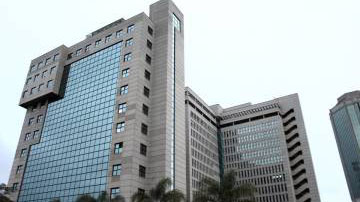
The Sunday Mail

Tawanda Musarurwa
The National Social Security Authority (NSSA) has effected an upward adjustment in pension payouts to improve the welfare of pensioners and cushion them from the obtaining economic challenges.
From this month going forward, the lowest earning pensioners will be getting $200, up from $80.
In terms of the current compensation framework for NSSA, pension payouts depend on contributions, since there is a ceiling on payouts, the highest earning pensioners are getting about $2 000.
“The minimum pension has moved from $80 to $200 starting from this month,” said NSSA senior benefits officer Mr Rodwell Jariremombe during an Insurance and Pensions Commission- ZimSelector workshop last week.
The upward review of pay-outs has also trickled to NSSA’s Accident Prevention and Workers’ Compensation Scheme.
“Our funeral grant, which is given when one passes on as a result of a workplace accident, has also been reviewed upwards from $300 to $2 000,” he added.
The upward review follows an actuarial evaluation that was carried out by NSSA over the past few months.
Earlier in July, Government made a decision to award a once-off discretionary bonus equivalent to a month’s pension to cushion pensioners from the general increase in the cost of living.
The discretionary bonus was a stop-gap measure while the authority was waiting for the conclusion of a mid-term actuarial review that was being carried out as an urgent matter following significant progress made in the preparation of the authority’s financial statements for the year ended 2018.
Inflationary pressures have severely weakened consumer spending, with pensioners being the hardest hit.
The majority of pensioners have raised concerns over another round of value loss in terms of their current payouts (similar to those experienced at dollarisation in 2009) after the currency reforms, which have been implemented over the last few months.
A key consequence of the currency reforms has been the constant depreciation of the local currency.
In respect of the local pensions sector, depreciation of the Zimbabwe dollar against the US dollar is affecting the imputation of assets held through defined benefit retirement plans.
A defined benefit pension plan is a type of pension plan in which an employer promises a specified pension payment, lump-sum or combination thereof on retirement that is predetermined by a formula based on the employee’s earnings history, tenure of service and age.
To this extent, an inflationary environment such as the one Zimbabwe is presently undergoing affects the purchasing power of the pension.
On the other hand, defined contribution (DC) plans — which are a type of retirement plan in which the employer, employee or both make contributions on a regular basis, and future benefits fluctuate on the basis of investment earnings — have also not been spared by the weakening currency because a significant number of pension funds are heavily invested on the capital markets, which have been underperforming in line with the depressed economic performance.
And some pensioners have, however, argued that NSSA’s pension payouts during these inflationary times should be indexed at the going exchange rate to preserve value.



